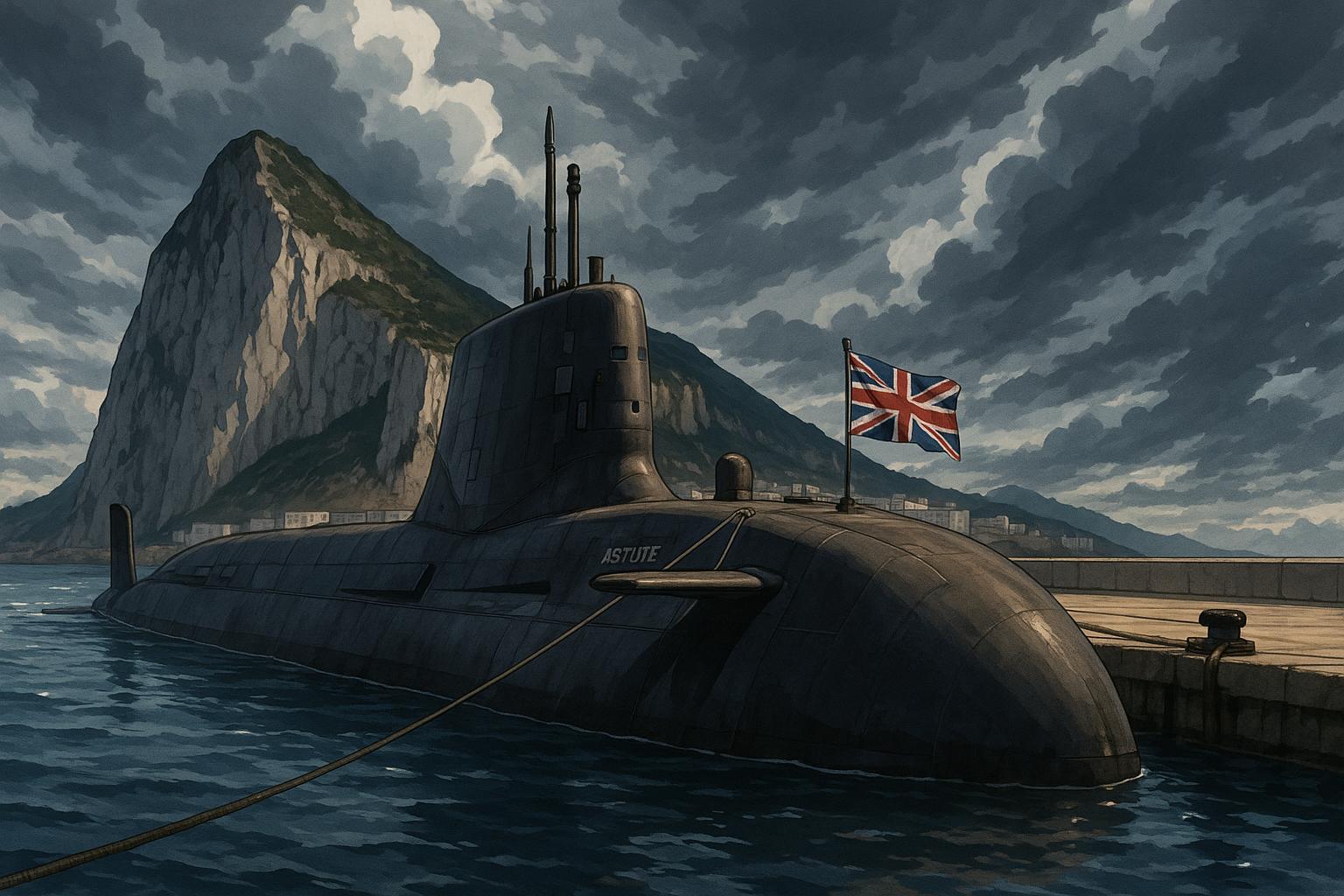A British attack submarine has docked in Gibraltar amidst renewed tensions surrounding the territory's sovereignty, following recent comments from a senior Spanish official. The nuclear-powered HMS Astute arrived in Gibraltar, known for its strategic importance to the Royal Navy, to restock and resupply. The visit comes just days after Spain’s Foreign Minister, José Manuel Albares, reignited discussions over Gibraltar’s status, asserting that the issue remains unresolved. Speaking to BBC Newsnight, Albares expressed a desire for a resolution to the sovereignty debate, linking it to a broader UK-EU defence deal. He emphasised the necessity of a comprehensive relationship that encompasses various matters, including Gibraltar.
Historically, Gibraltar has been a point of contention between Spain and the UK since it was ceded to Britain in 1713. The territory's current population largely supports remaining a British Overseas Territory, displaying strong national ties to the UK. Recent comments from Albares have drawn sharp criticism from British politicians, including Shadow Foreign Secretary Dame Priti Patel, who accused the government of projecting weakness on this matter. She stated emphatically, “Gibraltar is British, end of, and we will remind the government exactly where the sovereignty of Gibraltar lies.” The UK government has reaffirmed its commitment to Gibraltar, stating unequivocally that it will not concede sovereignty to another nation.
The visit of HMS Astute underscores the Royal Navy’s ongoing engagement with Gibraltar, a regular port for its submarines due to their critical operational relevance. This Astute-class submarine is part of a fleet designed to enhance the UK’s military prowess, featuring cutting-edge technology such as Tomahawk missiles and a capability for prolonged deployment without the need for refuelling. The strategic significance of Gibraltar in naval operations remains paramount, as confirmed by earlier visits from other Astute-class submarines, like HMS Anson, which docked in Gibraltar earlier this year.
Gibraltar’s socio-economic landscape is marked by complex dynamics, particularly following Brexit. With over 14,000 active companies primarily in sectors such as gambling and fintech, Gibraltar has established a unique economic identity. However, it faces challenges, including an inflated housing market and reliance on Spanish workers from nearby La Línea. Chief Minister Fabian Picardo has stressed the necessity of safeguarding Gibraltar’s autonomy and prosperity in light of these evolving circumstances.
Moreover, discussions surrounding Gibraltar touch upon wider issues of territorial rights and self-determination. Experts, including Professor Jaime Trinidad of the Lauterpacht Centre, have argued that Spain's claims, particularly concerning territorial waters, lack a robust legal foundation. Trinidad suggests that the ongoing dispute reflects deeper socio-political complexities that could be addressed under the United Nations Convention on the Law of the Sea.
Furthermore, local leaders such as Juan Carlos Ruiz Boix, the mayor of San Roque, are advocating for bold negotiations to resolve these longstanding tensions. He has proposed innovative solutions to facilitate relations between Spain and Gibraltar, including the potential relocation of border controls to streamline movements and enhance cooperation.
As discussions continue amidst a backdrop of military presence and historical claims, the future of Gibraltar remains a focal point for both domestic and international dialogue, with implications that stretch beyond its rocky shores. The resilience of Gibraltarians, their insistence on self-determination, and the broader geopolitical context continue to shape the ongoing narrative surrounding this contested territory.
Reference Map
- Paragraph 1: 1, 2
- Paragraph 2: 1, 3
- Paragraph 3: 1, 2
- Paragraph 4: 2, 3
- Paragraph 5: 3, 4
- Paragraph 6: 5, 6
Source: Noah Wire Services
